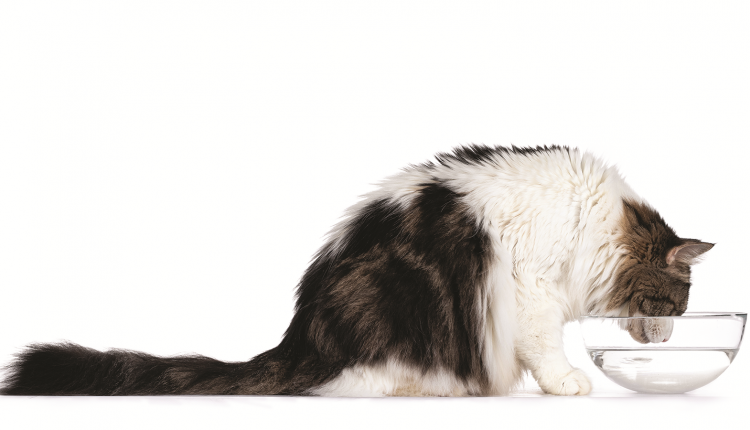[ad_1]
Up your cat’s nutritional game by choosing the latest foods, supplements and foods packed with health benefits for your cat.
The down payment is invaluable: Your cat may wear a shiny coat, build healthy deposits in the litter box, avoid chronic diseases like diabetes or hyperthyroidism and be pain-free with age.
Customize the right diet for your cat
The challenge comes in meeting the specific needs of your cat. In recent years, the pet food revolution has taken off with global sales exceeding $85 billion. This means more choices for your cat and more decisions for you: Does your cat need prebiotics and probiotics? Will switching to superfoods lead to healthy profits? Should you consider supplementing your cat’s diet with CBD oil or enticing your cat to good behavior with insect protein-based treats?
Answer: It depends. Regularly check with your vet before adding any new supplement or switching to a new diet to avoid any adverse reactions.
Elizabeth Ballis, MD, a veterinarian who serves on the advisory board of the American Society for Cat-Friendly Feline Practice and is the inventor of Doc & Phoebe’s Indoor hunting feed products. “Include your cat’s activity level and identify any behavioral changes you notice in your cat, especially signs of increased stress.”
Every cat is unique. Every cat has different nutritional needs that change with age.
“Diet affects how well cats live,” says Dr. Jan Hofvey, a holistic veterinarian in Boulder, Colorado, author of What Cats Should Eat: A Comprehensive Vet’s Guide to the Optimal Diet for Your Cat. It is also an institution LittleBigCat website.
“Feeding the best foods takes more effort and can be a little more expensive,” she says.
“But you will save a lot of money by not having to treat preventable diseases.”
Let’s take a look at some potentially beneficial treatments and supplements for your cat based on its age.
What should I feed my cat?
The immune system, digestive system and major organs are still developing for young felines, especially those under 6 months of age. Experts highly recommend slowly introducing a varied diet to expand your cat’s palate and acceptance of all types of foods.
Dr. Hazel Carney, a board-certified veterinarian who has worked in the American Animal Hospital Association/American Association of Feline Practitioners Unit says. “This is the time to introduce your little one to steaks, pies, wholemeal, freeze-dried, vegetables and more. That way, if your cat runs out of favorite food, he will be more willing to eat other types.”
Kitten supplements tend to provide a much-needed boost of vitamin A as well as the minerals magnesium, copper, and iodine. Your vet may also recommend a supplement containing calcium and phosphorous for bone growth and the omega-3 fatty acid DHA, which is known to help the brain and vision. And check out leech foods as a tasty tactic when you need to give medication.
Nutritional supplement to keep your adult cat healthy
The task during adult years is to maintain a healthy weight for your cat. More than 70% of domestic cats are overweight or obese. Excess weight can put your cat at greater risk of developing chronic health problems such as diabetes, urinary obstruction, arthritis, and skin diseases.
“Sprinkling digestive enzymes and probiotics on your cat’s food can help your cat get the most benefits,” says Dr. Hofvey.
When adult cats face stressful situations, it can be a punch on their digestive health or cause them to engage in unhealthy habits, such as excessive grooming that leads to bald spots. Be aware of any changes in your adult cat’s eating habits or behaviors if you bring a new pet, move into a new home, or make any other major changes to your family’s routine.
Ask your vet about options, such as cannabidiol oil and soft chew treatments, that help stressed or stressed cats. Our experts recommend CBD products that have been independently tested by third party labs for potency and purity.
Cats dealing with urinary tract infections may take a cat supplement containing cranberry to help with healthy urination and to regulate pH balance.
Reducing the health problems of the elderly through nutrition
Your senior cat is in the slowing stage of life and faces many problems: arthritis, weight loss, a weak immune system and digestion problems.
“Low BMI is a serious burden for older cats,” Dr. Hofvey says. “Muscle wasting can be debilitating.”
Again, work with your veterinarian to come up with the right supplements for your golden age cat. Adding a spoonful of pumpkin may tame stomach acid and ease other digestive issues. Pumpkin is full of fiber, potassium, and key vitamins A and C. Read the label and select canned pumpkin (not the sugar-laden canned pumpkin pie filling).
Those containing turmeric may reduce inflammation, reduce arthritis pain, and possibly provide anti-cancer support. Other options to consider include offering additional omega-3 fats, such as fish oils or green mussel oils, as well as prebiotic fibers (such as inulin) and probiotics to aid digestion and support the immune system.
“As a cat ages, its ability to digest and absorb nutrients changes, and it generally declines,” says Dr. Carney. “For older and older cats, in order to maintain their weight, we need to give them easily digestible nutrients and more of them.”
A treatment for all ages
Check out some of the latest great foods for your cat, adult or older:
Hills Diet Crunchy Metabolic Diet; 6.99 US dollars.
Tiny Tiger Lickables Senior Formula Bisque Cat Treat & Topper; US $12.77.

Comments are closed, but trackbacks and pingbacks are open.